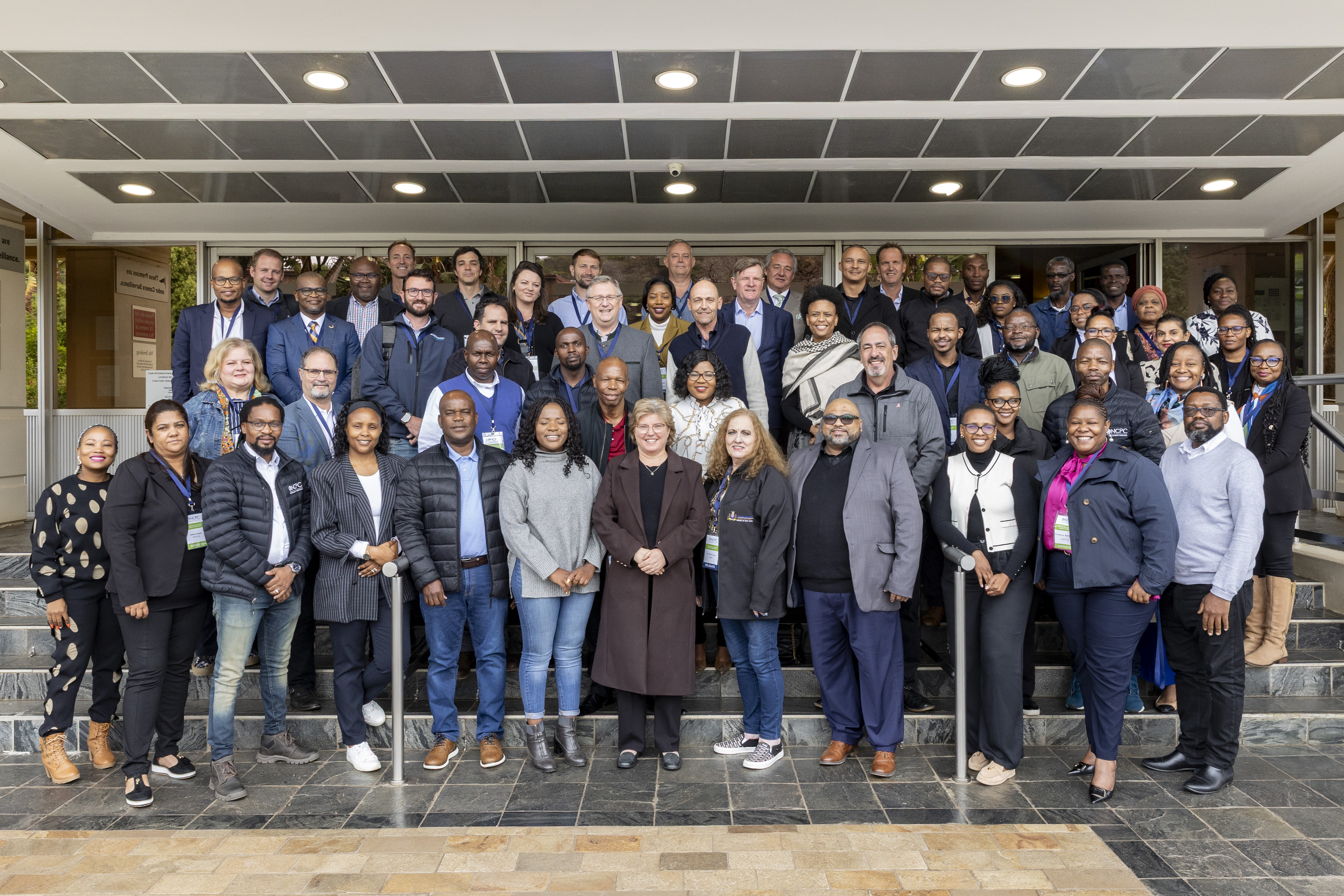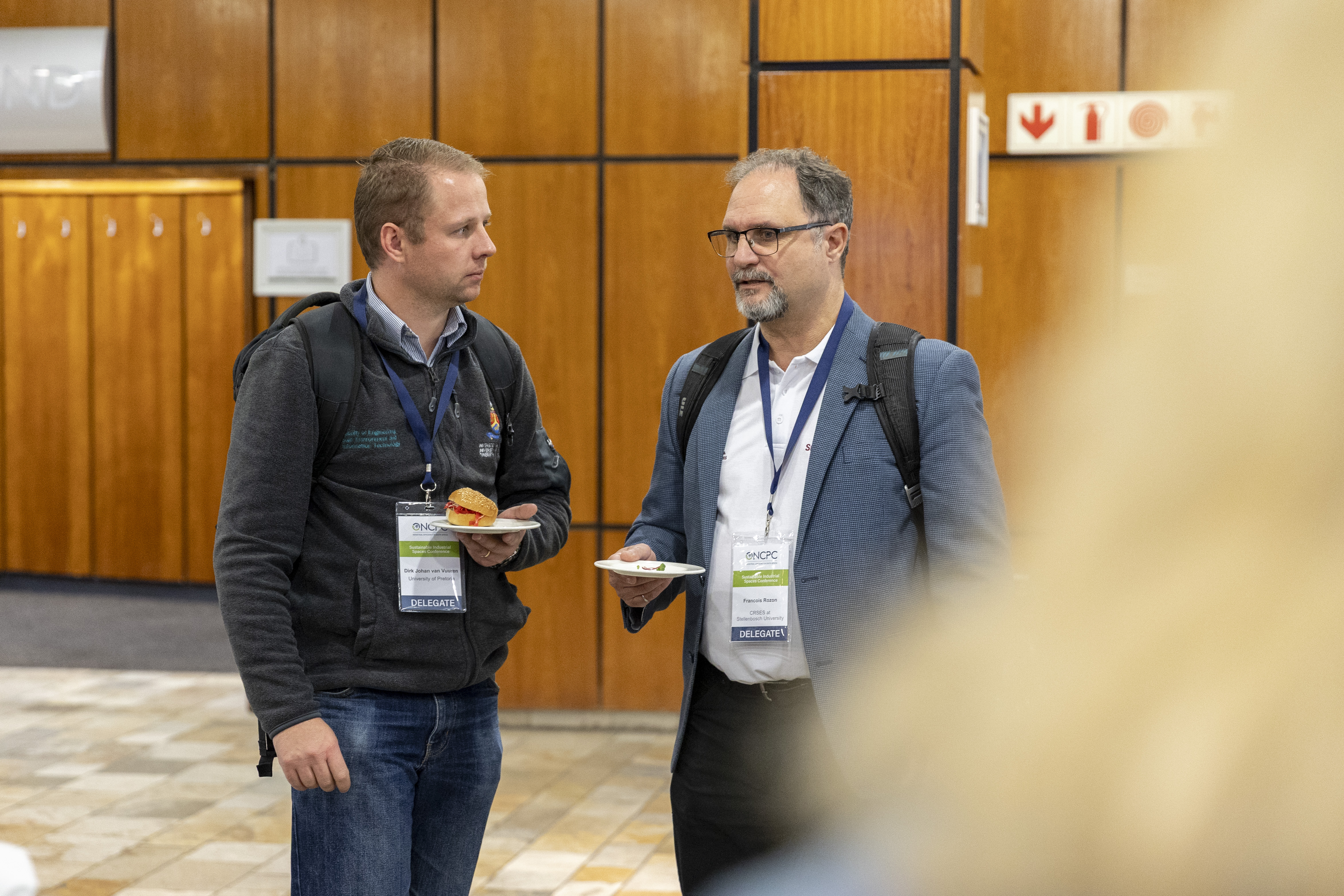The 2nd Sustainable Industrial Spaces Conference, hosted by the National Cleaner Production Centre (NCPC) in collaboration with the Council for Scientific and Industrial Research (CSIR), took place on 20–21 October 2025 at the CSIR International Convention Centre in Pretoria.

The event brought together a wide range of stakeholders, from industry leaders and representatives of Special Economic Zones (SEZs) and Industrial Parks, to researchers, policymakers, and international development agencies, all united by a common goal, which is to advance sustainable, efficient, and low-carbon industrial production in South Africa.
Representing Stellenbosch University’s Centre for Renewable and Sustainable Energy Studies (CRSES), Dr Francois Rozon participated actively in the two-day programme, engaging in discussions on industrial thermal energy systems and pathways for industrial decarbonisation. He was joined by Professor Willem Le Roux and Dr Dirk van Vuuren from the University of Pretoria, as part of a collaborative effort to explore how research and technology innovation can accelerate industrial transformation.
The conference featured keynote presentations and expert panels that highlighted South Africa’s key sustainability initiatives and ongoing projects across industrial hubs. Participants gained valuable insights into strategies being pursued by local and international organisations to enhance resource efficiency and reduce environmental impact across the manufacturing sector.
One of the major highlights of the event was the showcase of leading SEZs and Industrial Parks that are pioneering sustainability practices and implementing innovative solutions to improve energy efficiency. These zones represent vital platforms for research, technology development, and system design aimed at reducing carbon emissions from industrial process heat, one of the most significant sources of energy demand in manufacturing.
According to Dr Rozon, SEZs and industrial parks “offer immediate, practical opportunities for collaboration between academia and industry to develop innovative thermal energy systems and decarbonisation strategies.” Such partnerships are critical for achieving South Africa’s long-term industrial sustainability goals while maintaining competitiveness in a rapidly evolving global energy landscape.
The conference reaffirmed the growing role of collaborative research and applied engineering in shaping a more sustainable industrial future, one where cleaner production, energy efficiency, and innovation drive economic growth and environmental responsibility in equal measure.


